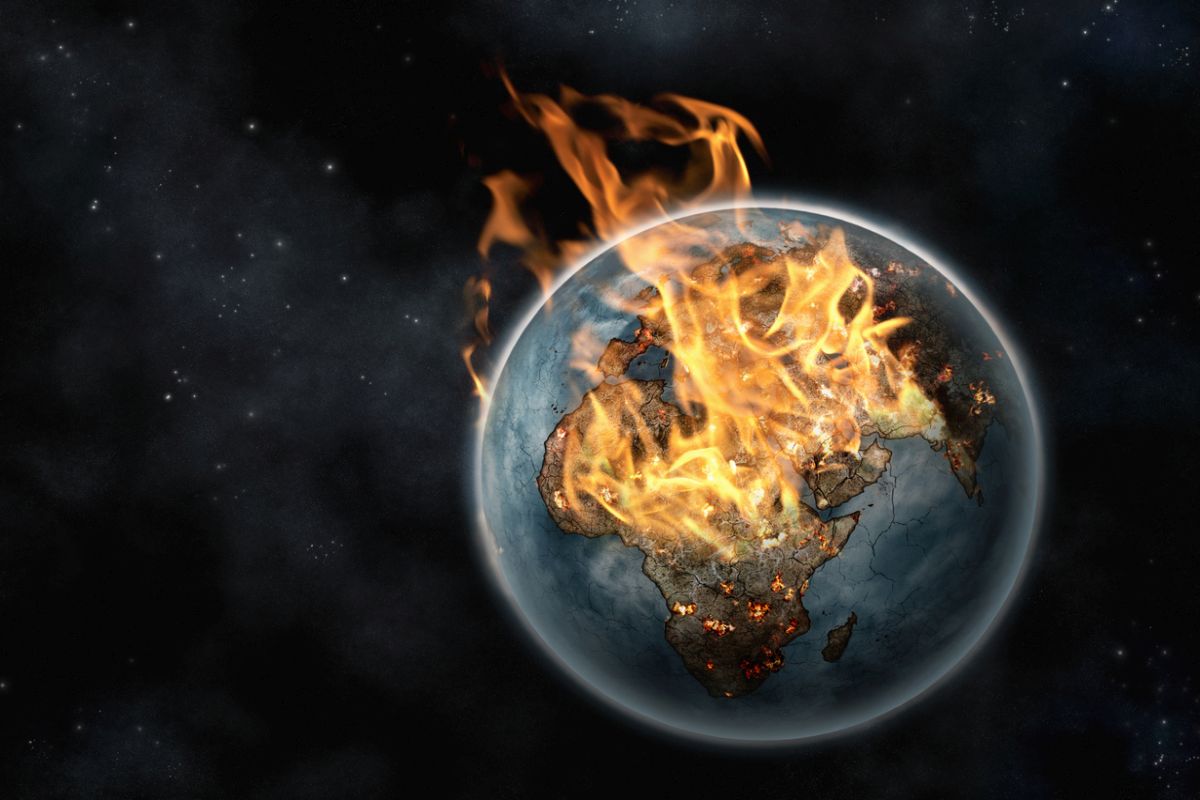Can you hear our Mother Earth groaning. Can you hear her cry of despair? Our blue earth has given shelter for her inhabitants, especially the homo sapiens with a steady and comfortable climate for almost 8000 thousand years. Before that the earth went through the ice age; at some other time, long buried in time, tropical animals used to roam around the polar cap.
Unchecked growth of technology in all forms, consumption of fossil fuel in abundance, deforestation in a magnum scale, has made the earth sizzling amidst the heat. There are ice caps on the poles, large chunks of glaciers are melting away rapidly, our great protector the Himalayas is no exception. Once ice bound Greenland sadly is turing barren with fresh rivers emerging from nowhere. The water flowing down in torrents from the melting ice is raising the level of the oceans, the heart and soul of our climate equilibrium. The cycle of climate is changing dramatically and unrecognisably.
Advertisement
In Bengal, none of us has experienced such a dry spell in June, July. The entire world has faced the hottest July ever. France has just experienced a temperature of more than 40 degrees C and it is likely to go up to 50 degrees C by 2100. Certain parts of India will face a temperature of 60 degrees C or more by that time if we follow the “business as usual route”. The frequency of earthquakes is a clear indicator of geological faults, the tectonic plates, down below the earth’s surface, are exerting huge pressure on each other, caused by the unprecedented increase in weight of the water volume, in the oceans.
An UN report released recently has warned “Our environment is at tipping point” and inching towards the “biophysical limit”. “The melting of the polar ice caps, desertification in Africa, deforestation of tropical jungles, the spiralling use of chemicals and the emptying it out on the world’s seas are just some of myriad environmental catastrophes posing a serious threat to life as we know it.” The report adds: “Twenty per cent of vertebrate specices are under threat of extinction, coral reefs have declined by 38 per cent since 1980, greenhouse gas emissions could double over the next 50 years and 90 per cent of the water and fish samples from aquatic environments are contaminated by pesticides. But little or no progress has been made over the past five years including the vital problem of global warming”.
Regretfully, it is an inescapable conclusion that we have already entered an “Irreversible climate change era”. Let us analyse the scenario in quantitative terms: The driving force of any society today is rapid economic prosperity, which is without question equated to progress. The result ~ uncontrolled growth of “technology without any concern to ecology”. The world consumes a lot of energy ~ at a rate of 15 per cent Terra Watt (TW), average 2.4 kilowatt (kw) per person continuously (uk = 5.1 kw, USA = 2.1X UK = 48X Bangladesh). The world’s energy-use is expected to grow by 50 per cent by 2020. Ironically 80 per cent of it is generated by burning fossil fuel. Carbon dioxide emission from the burning fuel has no “quick fix” solution; carbon dioxide and monoxide cover the earth’s sky like a blanket and stays there for a minimum of one hundred years.
This blanket does not allow the heat generated from the earth to disappear into outer space, leading to the “greenhouse effect”, of heating up the earth by its own heat. It burns out the Ozone (one variety of oxygen not the usual O2 but with one more molecule of oxygen, O3) layer on our polar caps causing serious health hazards. With ice sheets the solar shine was getting reflected, but now the dark oceans are absorbing it all, further increasing the heat content on earth. Let’s remind ourselves that the gas coming out of the old car especially the yellow taxis of Kolkata, the chula burning alongside the road with heaps of coal on it or at home, are going to contribute to the greenhouse effect.
I am sure the poor road side dhabawallah is not bothered at all, she has a family to feed. The problem becomes even more daunting when one takes into account the rising middle class leading to more energy consumption. From 1.8 million middle-class consumers today, it is expected that the middle class segment will go up to 3 billion by 2030 and India will account for a substantial share of the same. We have to provide for them ~ more energy, more burning of fossil fuel, more carbon dioxide.
India is justly proud of the number of its increasing young middle class , but ignores the crisis created by the increasing energy consumption. There are other pressing problems as well. Two dramatic pictures are indisputable evidence of the grim scenario ~ one at Muir Glacier SE Alaska and the other one is our own Himalayan Glacier. In both cases, the solid ice has melted to a vast water body in a short period of time.
The water level of the oceans has increased enormously in forty years (1970 to 2010. From the normal water level in 1970, it has increased by 100 mm, a huge figure in the global scale! Carbon dioxide emission and GDP per capita have a direct correlation. The USA is at the top of the chart and India is at the bottom. But ironically India will suffer a lot more from the effects of climate change rather than the USA, which is taking corrective steps but will still remain at the top of the chart. India, much too busy with her politics, is still under a spell of slumber.
(To be concluded)
(The writer is INSA Honorary Scientist and former Homi Bhabha Professor, DAE, former Director, Saha Institute of Nuclear Physics and Variable Energy Cyclotron Centre)









